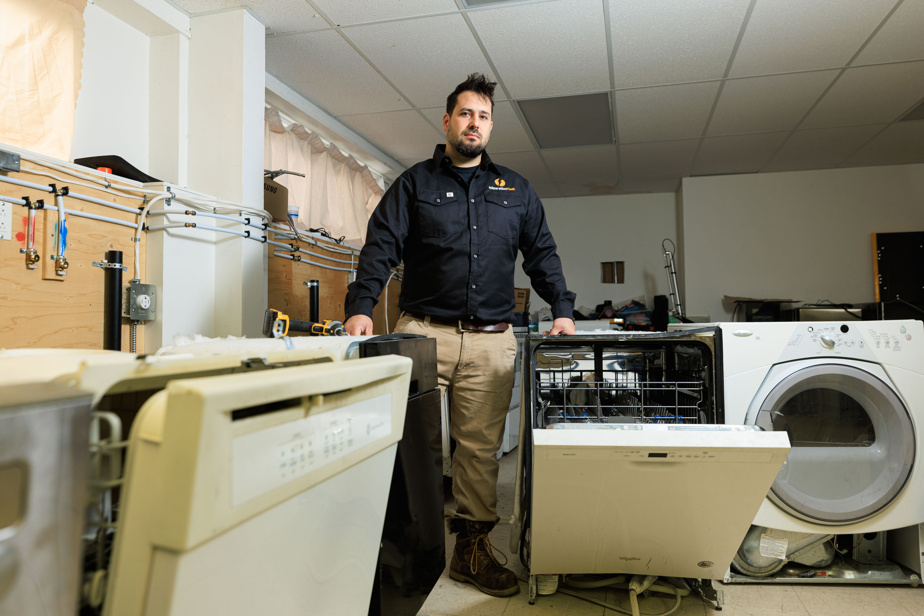
France has introduced a “repair bonus” for electrical appliances to extend the life of equipment and reduce waste. Should Quebec do the same?
From mid-December, the French can benefit from a “bonus” to repair their electrical appliances, ranging from 10 euros (about $14) for a kettle or toaster to 45 euros (about $65) for a computer.
Thirty types of equipment are currently eligible under the “Waste Prevention Act for a Circular Economy”. Creating a repair fund with 410 million euros (about 489 million CAN) over six years. Others will be added in 2024 and 2025.
Funding for this measure is provided by manufacturers, environmental organizations responsible for managing end-of-life of devices.
French users can therefore go to one of the top 500 approved repairers and benefit from a fixed discount on their broken drone or hood. The number of approved repairs will be gradually extended: 1,500 by 2023 and 10,000 by 2027.
A good liver
An estimated 10 million repairs are carried out every year in France, where around 1.5 billion electrical and electronic devices circulate. The aim is to increase the volume of these repairs by 20%.
“It’s a really good lever,” says Sophie Bernard, a professor at Polytechnique Montreal and an expert in the circular economy. “Should Quebec have something like that? Absolutely,” she said.
“Our system, at the moment, is built very little for repair,” laments Professor Sophie Bernard. According to her, it is necessary to recognize the extent of the problem and adjust accordingly.
A study by Équiterre on access to repair in Canada published in October indicated that less than 19% of the Canadian population had their broken appliances and electronics repaired, a rate that rose to 25% in Quebec.
“Manufacturing these products requires large amounts of resources and their short lifespan is problematic,” Équiterre points out. Their repair makes it possible to extend their lifetime and thereby limit the environmental and socio-economic impacts of their manufacture. »
Barriers to repairs for consumers identified by Équiterre include products being irreparable and repair costs. Quebec repairers want better access to replacement parts and manuals for repaired equipment, along with financial incentives to encourage this choice among consumers.
According to Julian Guzman, co-owner of Flash Repair in Montreal, lack of information and prohibitive costs often keep people from repairing their devices. “If France creates this incentive to help people, it will definitely help,” he said.
A repairman can repair most household appliances, but people don’t always know about it. They may also want to buy new ones because of the ubiquitous sales during the holiday season.
Better to inform users
In addition to the “repair bonus”, a “repair index” is gradually being implemented in France on some devices to help the consumer make his choice at the time of purchase.
“That’s a powerful tool because it sends signals to everyone,” says Sophie Bernard. On the one hand, the consumer can make a more informed choice, and on the other hand, the producer has a potentially monetized incentive to improve the repairability of his products.
In the context of its study, Équiterre rightly recommends facilitating the use of repairs in Quebec, in particular through the creation of “ecofiscality measures” and a “sustainability index”.
Asked if Quebec intends to follow in France’s footsteps, Environment Minister Benoit Charette’s cabinet replied that “it will be studied when the time comes.” The process will be done “in consultation with our partners, including Recyc-Québec,” according to its press officer Mélina Jalbert.
Recyc-Québec indicates for its part that it has “actively pursued the repair file for several years”. “We would be happy to cooperate with the various ministries and institutions” if a regulatory or legislative initiative in this direction were to emerge, said spokeswoman Véronique Boulanger.
With Agence France-Presse





